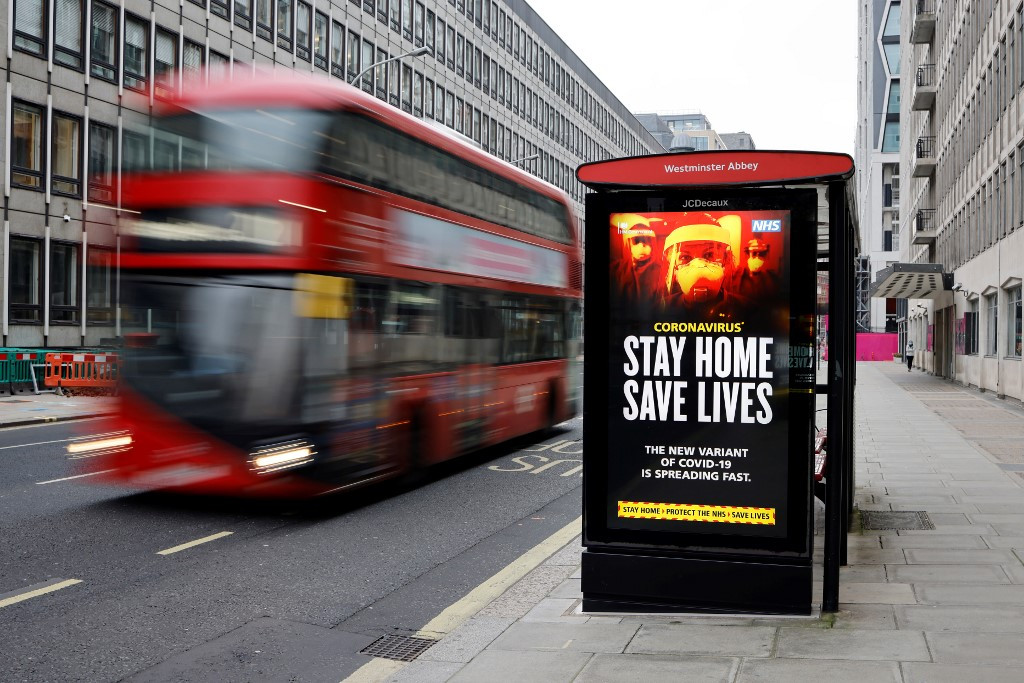UK trials studies if people can catch coronavirus again
In February, Britain became the first country in the world to give the go-ahead for so-called "challenge trials" in humans, in which volunteers are deliberately exposed to COVID-19 to advance research into the disease caused by the coronavirus.
Change Size
 A digital display at a bus station warns pedestrians of the new strain of coronavirus in central London on January 8, 2021, as England entered a third lockdown due to the novel coronavirus Covid-19. - Faced by a sharp rise in coronavirus infections, driven by the new strain, England entered a strict lockdown on January 5, 2021, with schools and non-essential shops closed for at least six weeks after previous measures failed to halt the steep rise in cases. (AFP/Tolga Akmen )
A digital display at a bus station warns pedestrians of the new strain of coronavirus in central London on January 8, 2021, as England entered a third lockdown due to the novel coronavirus Covid-19. - Faced by a sharp rise in coronavirus infections, driven by the new strain, England entered a strict lockdown on January 5, 2021, with schools and non-essential shops closed for at least six weeks after previous measures failed to halt the steep rise in cases. (AFP/Tolga Akmen )
B
ritish scientists on Monday launched a trial which will deliberately expose participants who have already had COVID-19 to the coronavirus again to examine immune responses and see if people get reinfected.
In February, Britain became the first country in the world to give the go-ahead for so-called "challenge trials" in humans, in which volunteers are deliberately exposed to COVID-19 to advance research into the disease caused by the coronavirus.
The study launched on Monday differs from the one announced in February as it seeks to reinfect people who have previously had COVID-19 in an effort to deepen understanding about immunity, rather than infecting people for the first time.
"The information from this work will allow us to design better vaccines and treatments, and also to understand if people are protected after having COVID, and for how long," said Helen McShane, a University of Oxford vaccinologist and chief investigator on the study.
She added that the work would help understanding of what immune responses protect against reinfection.
Scientists have used human challenge trials for decades to learn more about diseases such as malaria, flu, typhoid and cholera, and to develop treatments and vaccines against them.
The first stage of the trial will seek to establish the lowest dose of the coronavirus needed in order for it to start replicating in about 50 percent of participants, while producing few to no symptoms. A second phase, starting in the summer, will infect different volunteers with that standard dose.
In phase one, up to 64 healthy participants, aged 18-30, who were infected with coronavirus at least three months ago will be reinfected with the original strain of SARS-CoV-2.
They will then quarantine for at least 17 days and be monitored, and anyone who develops symptoms will be given Regeneron monoclonal antibody treatment.









